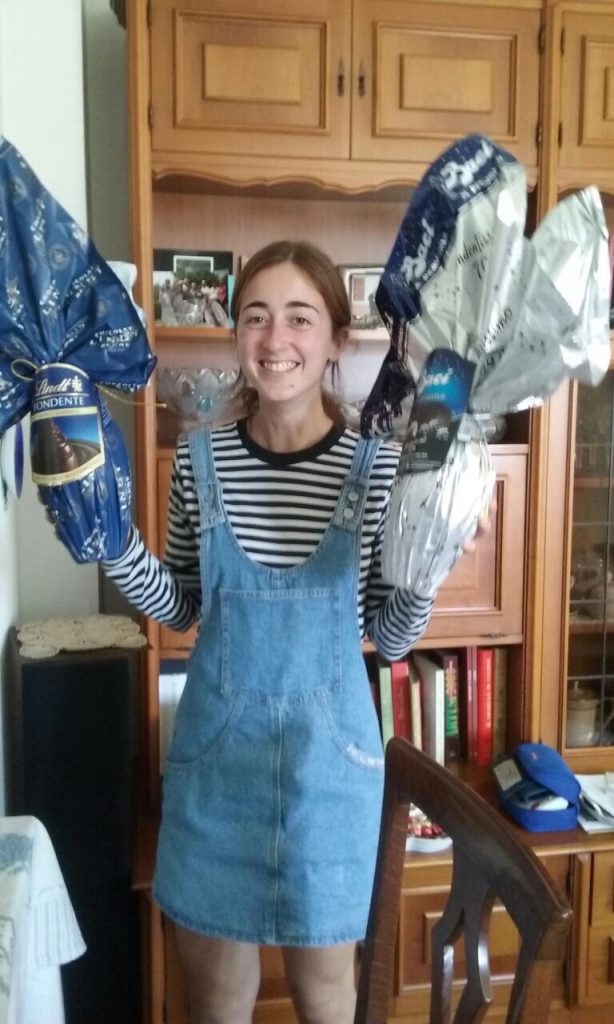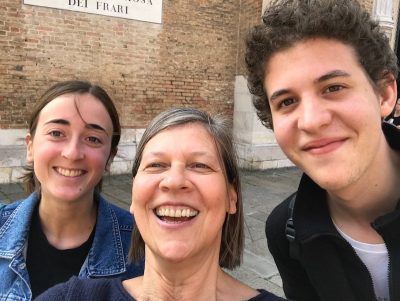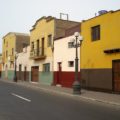
Julia is the eldest daughter of Barbaraexpat. In this enthusing article, she dives into her experience to reflect on what the question “Where do you come from?” means for TCKs and multicultural young. Thanks a lot, Julia!
The result of post-colonial Australia, a country founded upon convicts and immigrants, is a vast amount of people identifying not only as Australian, but also with their country of origin. When someone asks you your nationality in Australia, you do not simply answer with “Australian”, as that would be stating the obvious, but rather “I’m Maltese on my Dad’s side and Dutch on my Mum’s side”. Everyone knows their origins, as you never need to dig too far back on the family tree to discover where your ancestors originally came from.
 I never had to resort to the family tree as I was born to an Italian mother (accent and all) and a British-Australian father. I have always felt a strong connection to my Italian side of the family, to the extent that when I was asked my nationality, I would simply reply with “Italian”, completely ignoring my paternal side. I believe this has a lot to do with the fact that my sister and I were brought up bilingual. Unlike the post-Second World War Mediterranean immigrants who did their best to forget their mother tongue out of fear of being ostracised and bullied by their Australian peers, we were fortunate enough to grow up in a politically correct, middle class bubble. This meant that our ability to speak two languages was seen by our friends as a superpower rather than a flaw. Being able to say that I was not only Italian but was also able to speak it fluently made me gush with pride. Growing up going on regular holidays to Italy and Europe further strengthened my connection with that side of the world so that by the time I was sixteen, I knew that I would eventually live some, if not all, of my life over there.
I never had to resort to the family tree as I was born to an Italian mother (accent and all) and a British-Australian father. I have always felt a strong connection to my Italian side of the family, to the extent that when I was asked my nationality, I would simply reply with “Italian”, completely ignoring my paternal side. I believe this has a lot to do with the fact that my sister and I were brought up bilingual. Unlike the post-Second World War Mediterranean immigrants who did their best to forget their mother tongue out of fear of being ostracised and bullied by their Australian peers, we were fortunate enough to grow up in a politically correct, middle class bubble. This meant that our ability to speak two languages was seen by our friends as a superpower rather than a flaw. Being able to say that I was not only Italian but was also able to speak it fluently made me gush with pride. Growing up going on regular holidays to Italy and Europe further strengthened my connection with that side of the world so that by the time I was sixteen, I knew that I would eventually live some, if not all, of my life over there.
The opportunity arose in my second year of university when I applied to study abroad and got accepted at Ca’ Foscari University in Venice. I opted for a semester rather than a full year, due to a lack of confidence that made me question my decision to leave the safety and comfort of inner-city Melbourne quite often in the lead up to my departure. However, despite what my anxieties were telling me, I knew this was a challenge I had no choice but to undertake. Therefore, after two fabulous months of backpacking through Western Europe with a friend, I began my studies in Venice. It took only a couple of days before I realised the irrationality of my initial fears, and only a couple of weeks before I started the annoyingly bureaucratic but definitely worthwhile process, of extending my stay to the full year.
As you can imagine, a popular question asked between exchange students is:
Where do you come from?
When asked, I would reply with “Australia”. My answer would receive the same positive attention as that of saying I was Italian when back home. Yet this time instead of being asked “Can you say something in Italian?” or “Do you have any idea how lucky you are to have a European passport?” it was “Have you ever seen a kangaroo?” or “Is Christmas really in the summer?”
Although my fellow exchange students would never have guessed I was Italian because of the way I spoke English, it was quite the opposite when I was in lectures with my Italian classmates. When I spoke in Italian, they would not realise I wasn’t actually Italian until I’d point it out. Their shocked expressions at my (almost) flawless Italian when I told them I had grown up in Australia, once again sent that Italian pride gushing through me. To them, I would say that I was half Italian in order to justify my language skills, but I would always place the most emphasis on my “Australianness”.

Julia with Claudiaexpat and her son Mattia in Venice
It took me almost the whole year before I realised what I was doing. Why was it that in Australia I identified as Italian but in Italy I identified as Australian? Although I have reflected upon it at great length, I am unable to pinpoint why. Maybe it’s because I enjoy the attention I receive from being different. Or perhaps it’s because in Australia I don’t feel particularly Australian but in Europe I don’t feel particularly European. Having grown up being equally exposed to both cultures has put me in the unusual position of identifying a bit with both but fully with neither.
Putting it in writing is making me realise that this may sound like the stream of consciousness of someone undergoing an identity crisis, however I don’t think it is. I feel incredibly lucky to have being brought up as equally Italian as I have been Australian. Australia gave me an easy and relaxed childhood, free from endless homework tasks and oral interrogations, and the opportunity to be able to find a part-time job without having to compromise my studies or vice versa. Italy, on the other hand, gave me the history, culture and traditions that Australia lacks. As cliché as it sounds, I have been lucky enough to live the best of both worlds. From now on, I know that when the nationality question comes up, no matter where in the world I find myself, I know what my answer will be. I am half Italian and half Australian.




